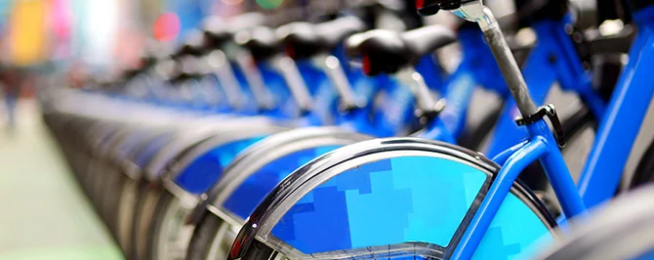A new study from the University of Illinois examined whether bikesharing programs complement or replace public transit, with results showing "encouraging news to bikeshare and traditional public transit systems”.
The researchers studied bikesharing in the midsize metropolitan area of Champaign-Urbana in Central Illinois, where 500 VeoRide bikeshare bikes are available across the university campus and wider community.
Associate professsor and co-author of the paper, Yilan Xu, said: "On one hand, bikeshare has the potential to compete with other transit types due to the convenience and speed (especially electric bikes). On the other hand, bikes might complement bus transit by replacing just a segment of the trip."
The researchers were careful to factor in weather conditions, leveraging the fact that rainy days can deter bike riding, and therefore serves as a good control for public transit ridership in the absence of bikeshare.
Their research concluded that bikeshare systems actually supported increases in public transit, rather than diminishing it. The introduction of non-electric bikesharing systems increased the number of bus rides by 1%, and electric bikes increased bus rides by 2.1%.
This doesn't sound like a lot, but with the bus system in Champaign-Urbana attracting around 12 million passenger trips in 2017; this means bus ridership could increase by 120,000 to 252,000 trips per year – a significant potential decrease in polluting and congesting private car trips.
These results suggested that people are using bikeshare systems to solve the first and last mile problem, which is "encouraging news to bikeshare and traditional public transit systems,” Xu says.
The data also suggested that socioeconomically disadvantaged and young people benefited the most from bikesharing, and that bikesharing systems increased access to mass transit, everyday amenities and job opportunities.
“Governments may want to invest in infrastructure like bike lanes and facilitate a bike-friendly community and encourage bikeshare companies to distribute their bikes in spots that would solve the first/last mile problem, probably by using a dockless system,” Xu concluded.
“Finally, transit systems and bikeshare systems may want to create partnerships to integrate charging systems that allow transfers between bikeshare and bus ride. This is going to create a win-win for both parties and benefit consumers.”
The paper was published in Transportation Research Part A: Policy and Practice.
Become our friend
Find out more about Bicycle Network and support us in making it easier for people to ride bikes.


